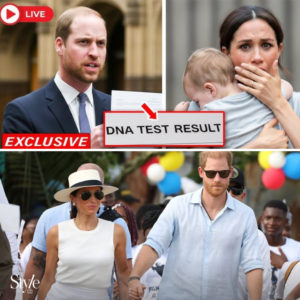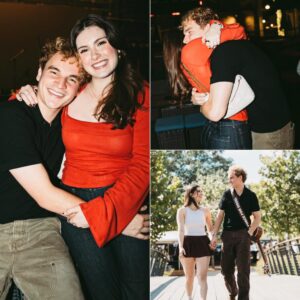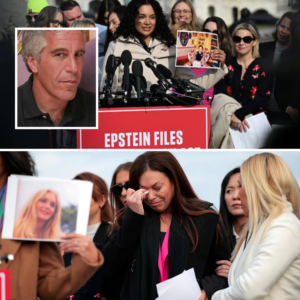Prince Harry’s Departure from Royal Life: A Charismatic Prince Seeking Freedom
In January 2020, Prince Harry, the Duke of Sussex, and his wife, Meghan Markle, made the unprecedented decision to step back from their roles as senior members of the British royal family. The announcement sent shockwaves through the global media and royal enthusiasts, as the couple, known for their charisma and public appeal, chose to forge a new path outside the confines of royal duty. Now living in Montecito, California, with their two children, Prince Archie and Princess Lilibet, Harry has embraced a life far removed from the palaces and protocols of his upbringing. According to royal author Andrew Morton, Harry’s decision was not a sudden whim but the culmination of a deep-seated discomfort with his role as a prince. Morton’s provocative claim—that Harry is “cursed with charisma but hates being a prince”—offers a lens through which to understand the duke’s dramatic exit and his pursuit of a life aligned with his personal values.

A Prince at Odds with His Title
Prince Harry’s decision to leave royal life was a surprise to many, particularly given his apparent ease in public roles. Known for his warmth, humor, and ability to connect with people, Harry was often seen as a natural in the royal spotlight. His work with charities, particularly the Invictus Games, showcased his ability to inspire and engage. Yet, beneath this public persona, Harry was grappling with a profound dissatisfaction. Speaking on The Mirror’s royal podcast Pod Save the Queen in 2022, Andrew Morton, author of Diana: Her True Story, suggested that Harry’s charisma was both a gift and a burden. “Prince Harry is cursed with charisma but hates being a prince,” Morton stated, arguing that the duke saw his marriage to Meghan as a “way out” of the royal constraints he found stifling.
Morton’s analysis points to a tension between Harry’s public appeal and his private discontent. While he excelled at connecting with people—much like his late mother, Princess Diana—Harry struggled with the expectations and limitations of his role. The royal author noted that Harry and Meghan had explored alternative paths long before their exit, including the possibility of relocating to New Zealand. Discussions with the country’s then-Prime Minister, Jacinda Ardern, revealed their desire for a life less bound by royal tradition. These plans, however, did not materialize, and it was Meghan’s arrival in Harry’s life that ultimately catalyzed his departure. Morton suggests that Meghan, with her independent spirit and American perspective, offered Harry a vision of a life beyond the monarchy—a life he had long craved.
Echoes of Diana: Harry’s Charismatic Legacy
Harry’s ability to connect with people has often drawn comparisons to his mother, Princess Diana, whose warmth and empathy made her a global icon. Morton highlighted this connection, recalling moments when Harry’s interactions with children or veterans evoked Diana’s legacy. “When I see Harry kneeling down with his arm around some kid, I am just watching Diana,” he said. “It transports you back 25, 30 years.” Like Diana, Harry has a natural ability to make people feel seen and valued, a quality that has endeared him to many. His work with the Invictus Games, which supports wounded veterans, and his advocacy for mental health through initiatives like Heads Together demonstrate a commitment to causes that resonate on a human level.
Yet, this charisma has not shielded Harry from criticism. Since leaving royal life, he and Meghan have faced intense scrutiny, particularly in the UK, where their decision to step back was perceived by some as a rejection of duty. Their Netflix docuseries, Harry & Meghan, and Harry’s memoir, Spare, further fueled controversy, with revelations about family tensions and royal life drawing both sympathy and backlash. Morton acknowledged this negativity, noting that while Harry and Meghan remain polarizing figures, their ability to connect with audiences in person is undeniable. “People do respond to them in a very positive way when they meet him,” he said, highlighting the couple’s enduring appeal despite the challenges they face.

Prince Harry and Meghan Markle quit royal life in 2020 (Image: Samir Hussein/WireImage)
A New Life in Montecito
Since relocating to Montecito, California, in 2020, Harry and Meghan have embraced a lifestyle that prioritizes privacy, family, and independent ventures. The couple has pursued a range of projects, from their Archewell Foundation to media deals with Netflix and Spotify. While these endeavors have met with mixed success—most notably the termination of their Spotify deal in 2023—they reflect Harry and Meghan’s desire to carve out a new identity. For Harry, this move has also been about creating a nurturing environment for his children, Prince Archie, five, and Princess Lilibet, three.
Speaking at The New York Times DealBook Online Summit in December 2024, Harry expressed gratitude for his life in California. “I very much enjoy living here and bringing my kids up here,” he said. “It’s a part of my life that I never thought I was going to live.” He emphasized the freedom to engage in activities with his children that would have been difficult in the UK, such as casual outings or playdates, without the constant scrutiny of the British press. Harry also suggested that this life aligns with the vision his mother had for him, stating, “I feel as though it’s the life that my mum wanted for me.” This sentiment underscores the influence of Diana’s legacy, not only in Harry’s public work but also in his personal aspirations.
Commitment to Charity, Not Crown
While Harry has distanced himself from royal duties, he remains committed to charitable work. Through the Archewell Foundation, he and Meghan have supported causes ranging from mental health to disaster relief. Harry’s involvement with the Invictus Games continues to be a cornerstone of his public life, with the 2025 games in Vancouver, Canada, marking a significant milestone. These efforts reflect Harry’s desire to maintain a positive impact, even as he rejects the traditional framework of royal service.
However, Harry has shown no inclination to return to royal work. His relationship with the royal family, particularly King Charles and Prince William, remains strained, with communication reportedly limited to occasional letters or unanswered calls. The couple’s decision to step back has been interpreted by some as a definitive break from the monarchy, a stance reinforced by their public disclosures about royal life. For Harry, the trade-off appears to be worth it, as he prioritizes his family’s well-being and personal freedom over the privileges—and pressures—of his former role.
A Prince Redefining His Path
Prince Harry’s departure from royal life in 2020 was a bold and polarizing move, driven by a deep discomfort with his role as a prince. As Andrew Morton suggests, Harry’s charisma, while a powerful asset, was at odds with the constraints of royal duty, leading him to seek a new path with Meghan by his side. In Montecito, Harry has found a semblance of the life he believes his mother, Princess Diana, envisioned for him—one of freedom, family, and meaningful work. While his decision has sparked controversy and strained family ties, it reflects a broader quest for authenticity in a world that often demands conformity. As Harry continues to navigate his post-royal life, his story serves as a reminder that even those born into privilege must forge their own paths to find true fulfillment.




